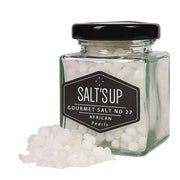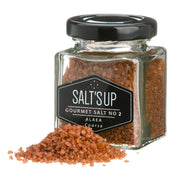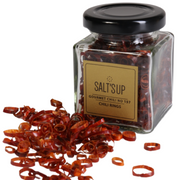MELEGUETA | GRAINS OF PARADISE Pepper
Melegueta pepper (also know as Grains of Paradise), are the seeds of Aframomum melegueta, a perennial plant native to West Africa. The seeds are contained within small, longish pods that develop from trumpet shaped flowers.
Melegueta peppercorns are just a touch spicy, which makes them a great alternative if you are someone who can’t stand heat but still desires for flavour. The pepper has a quite strong floral aroma with traces of clove and cardamom. Grains of paradise have been used in African cooking for centuries and as well in European cooking since around the 9th century.
We recommend using Melegueta pepper in marinades, on top of different vegetables and if you're a daredevil in the kitchen, you should definitely try making apple sauce pie together with this pepper!
Country of origin: Ghana
Grains of Paradise has a pungent flavor with a peppery bite and hints of cardamom and camphor.
Melegueta pepper makes a really interesting crust for tuna steaks.
We recommend using it in marinades or on top of different vegetables.
60g / 2.15 oz jar










